Empowerment in Disguise: Supporting South Asian Immigrant Women Experiencing Violence in the US
Ria John's thesis journey began with her volunteer work at a South Asian organization dedicated to assisting immigrant women as they adjusted to American culture. This role, which involved serving as a conversation buddy, allowed her to engage directly with these women, offering them support and companionship during their transition. It was during one of these sessions that Ria met a young Bengali woman who confided that she was living with an abusive partner.
The woman's poignant words, "I feel like I am stuck in a Kabar (tomb); I am of no value," profoundly impacted Ria. This expression of utter despair and entrapment catalyzed Ria's academic exploration, laying the groundwork for her thesis, Empowerment in Disguise: Supporting South Asian Immigrant Women Experiencing Violence in the US.
48% of South Asians in the US have experienced physical violence, a stark revelation that underscores the urgent need for targeted interventions.
Through her extensive research, Ria uncovered alarming statistics about the prevalence of domestic violence within the South Asian community in the United States. She found that 48% of South Asians in the US have experienced physical violence, a stark revelation that underscores the urgent need for targeted interventions. Further emphasizing this crisis, Kavita Mehra, the executive director of Sakhi, a well-known South Asian domestic violence organization in the US, highlighted a critical disparity: while the national average for domestic violence is 1 in 4 women, for the South Asian diaspora, the incidence rises to an alarming 2 in 5.
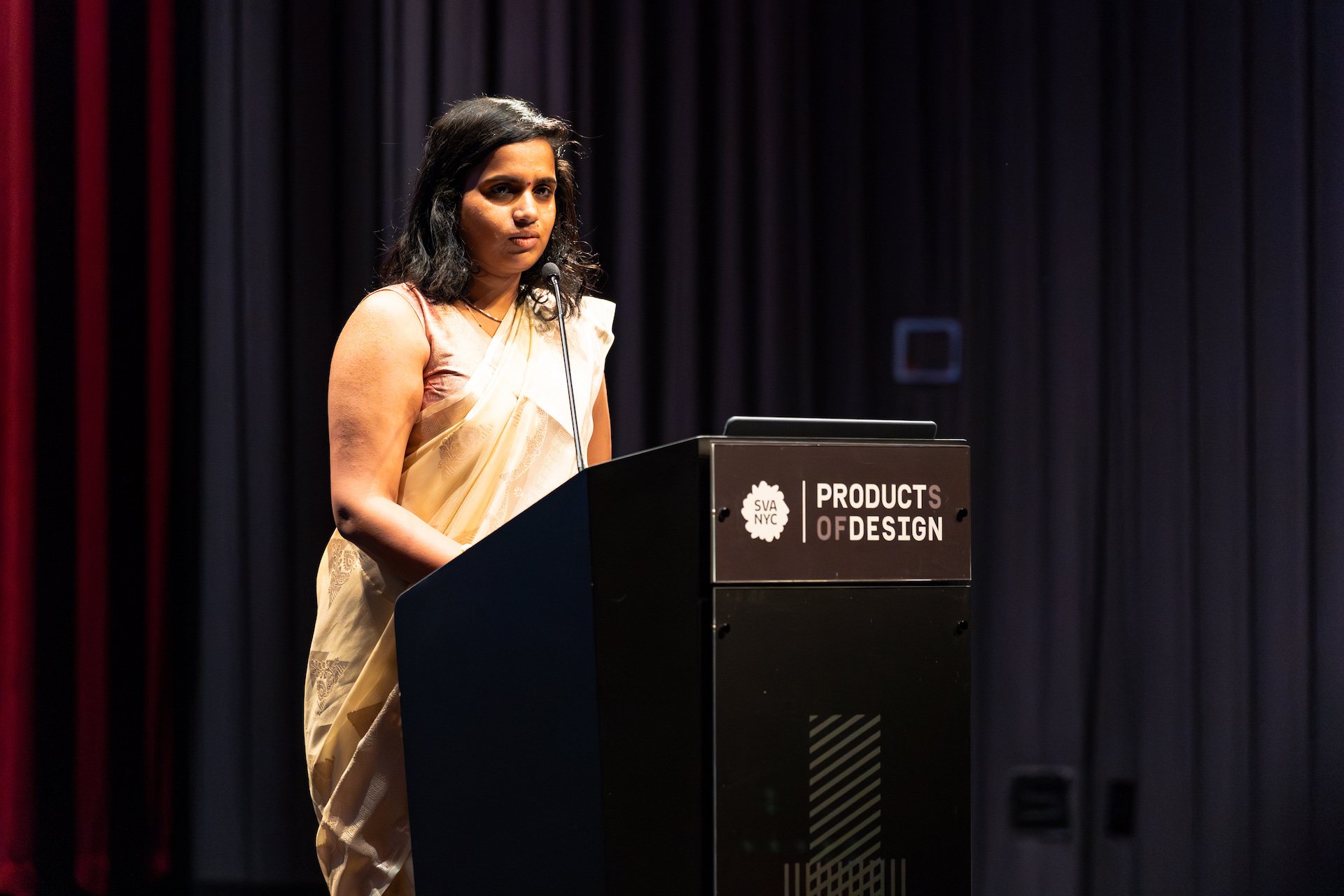
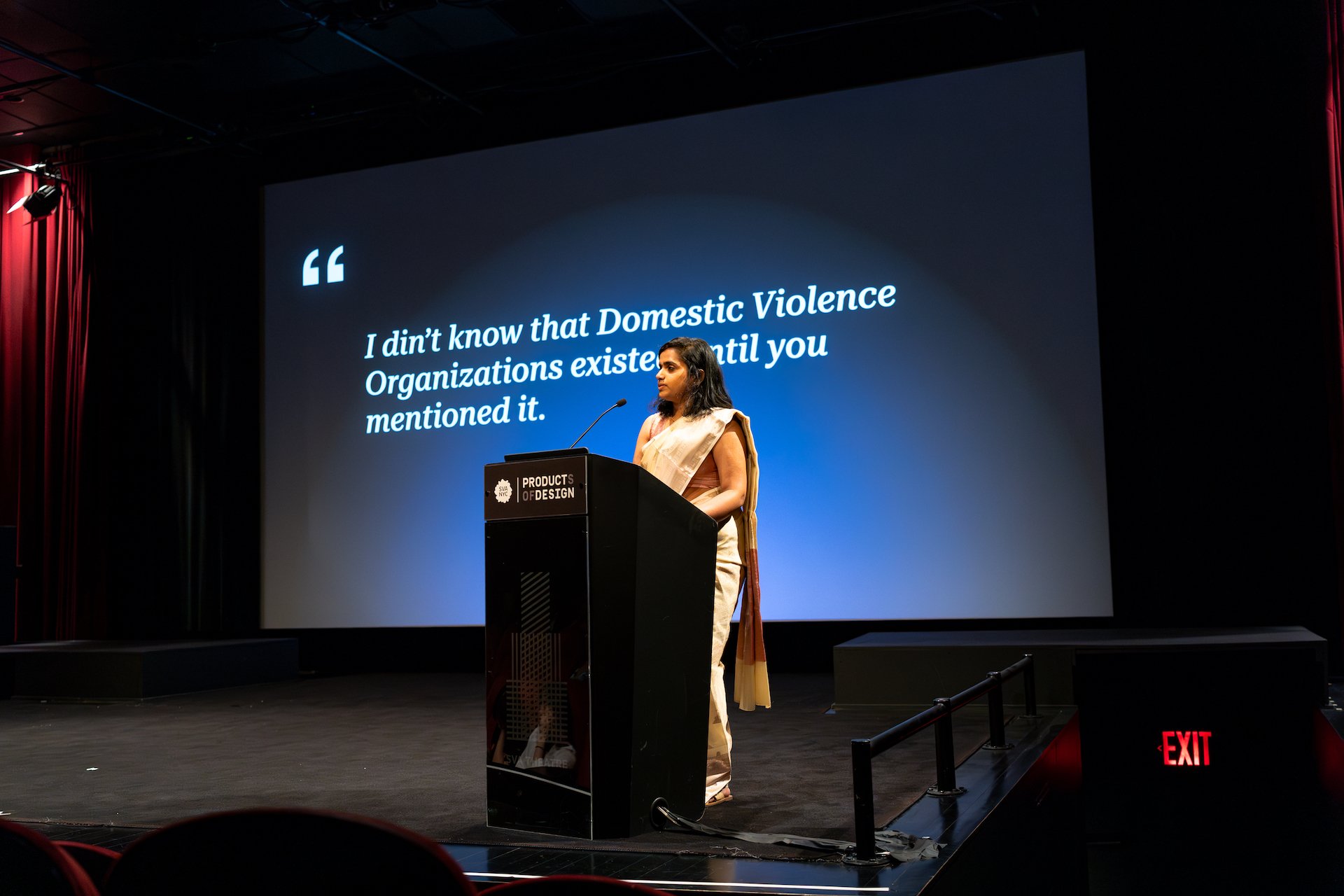
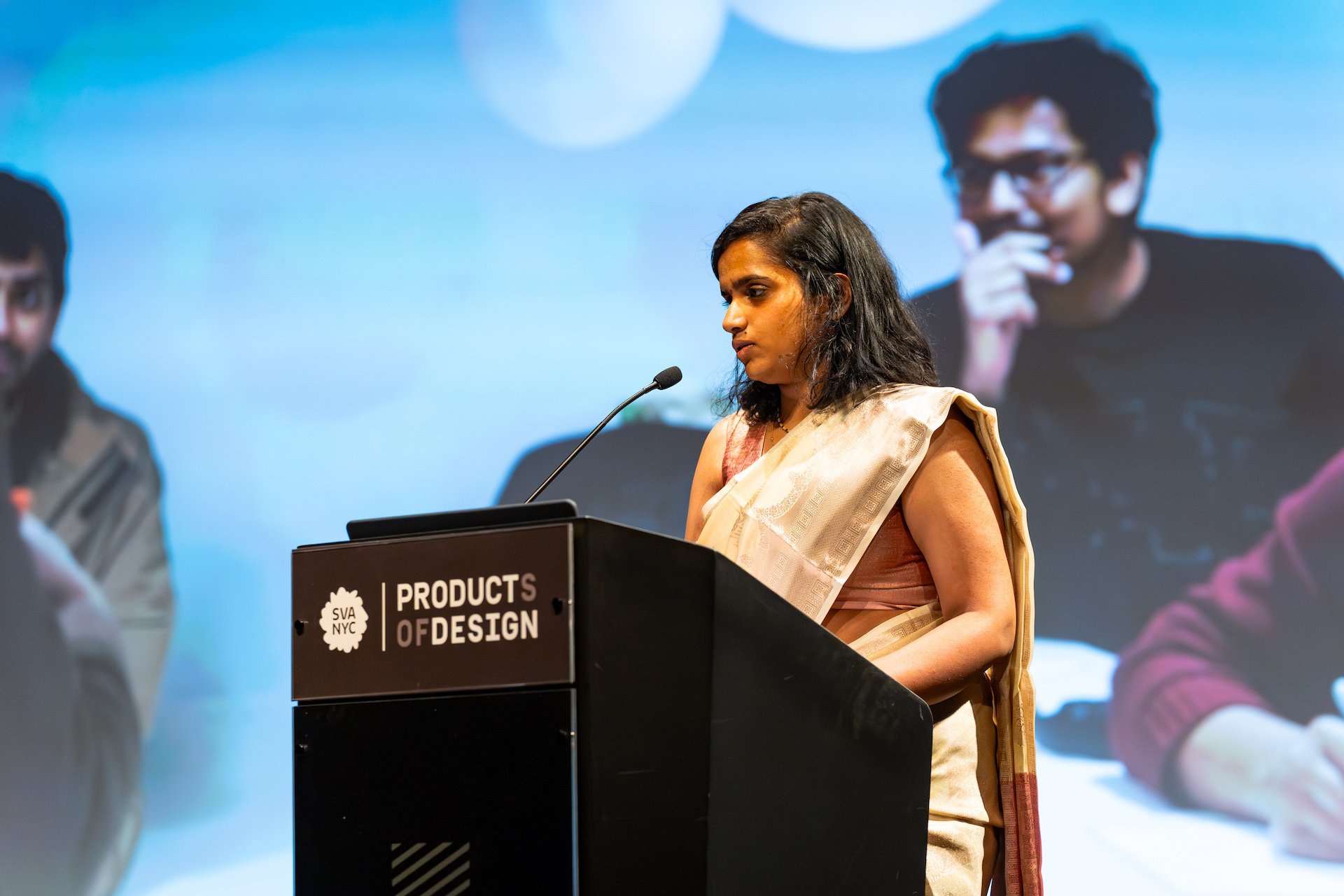

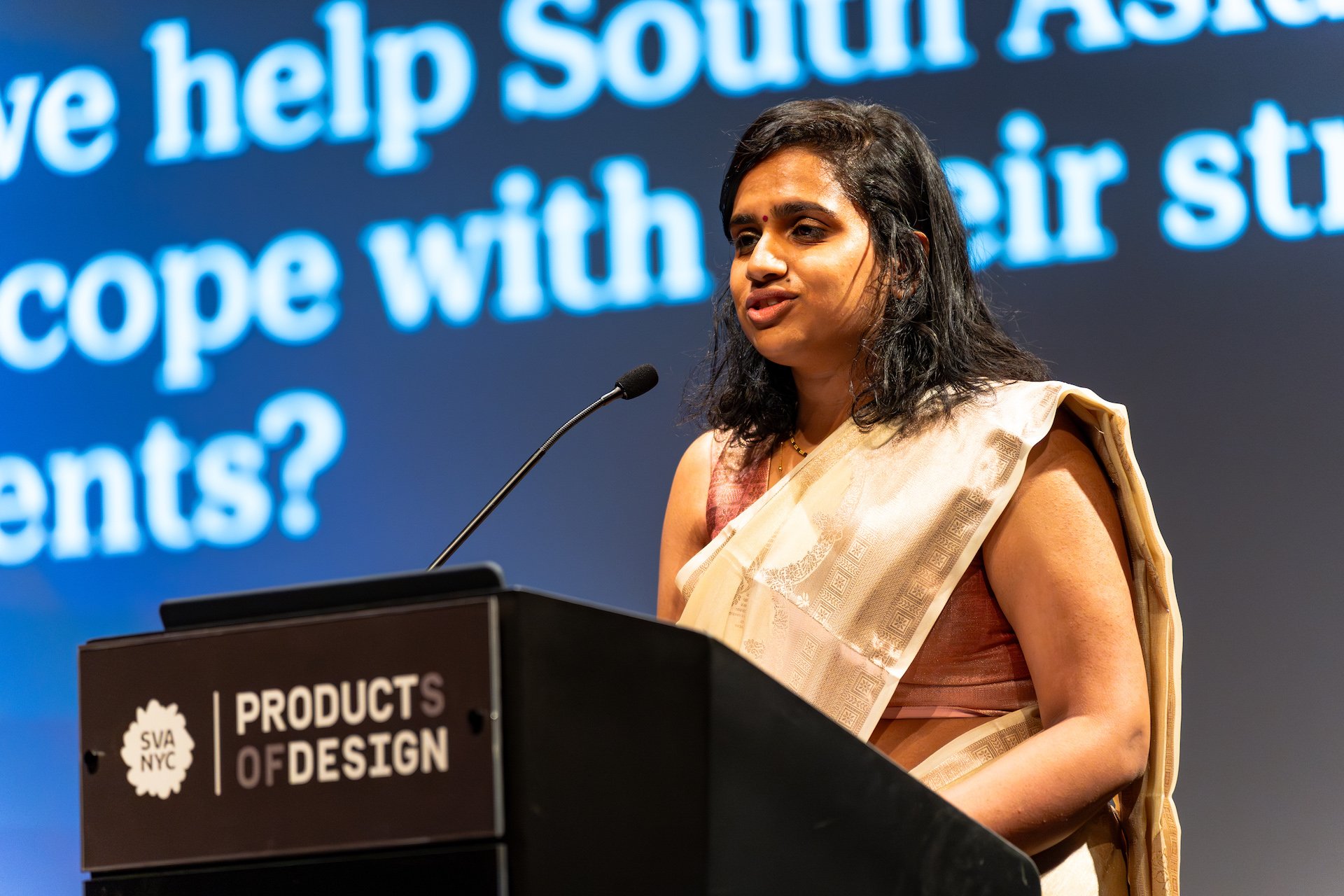
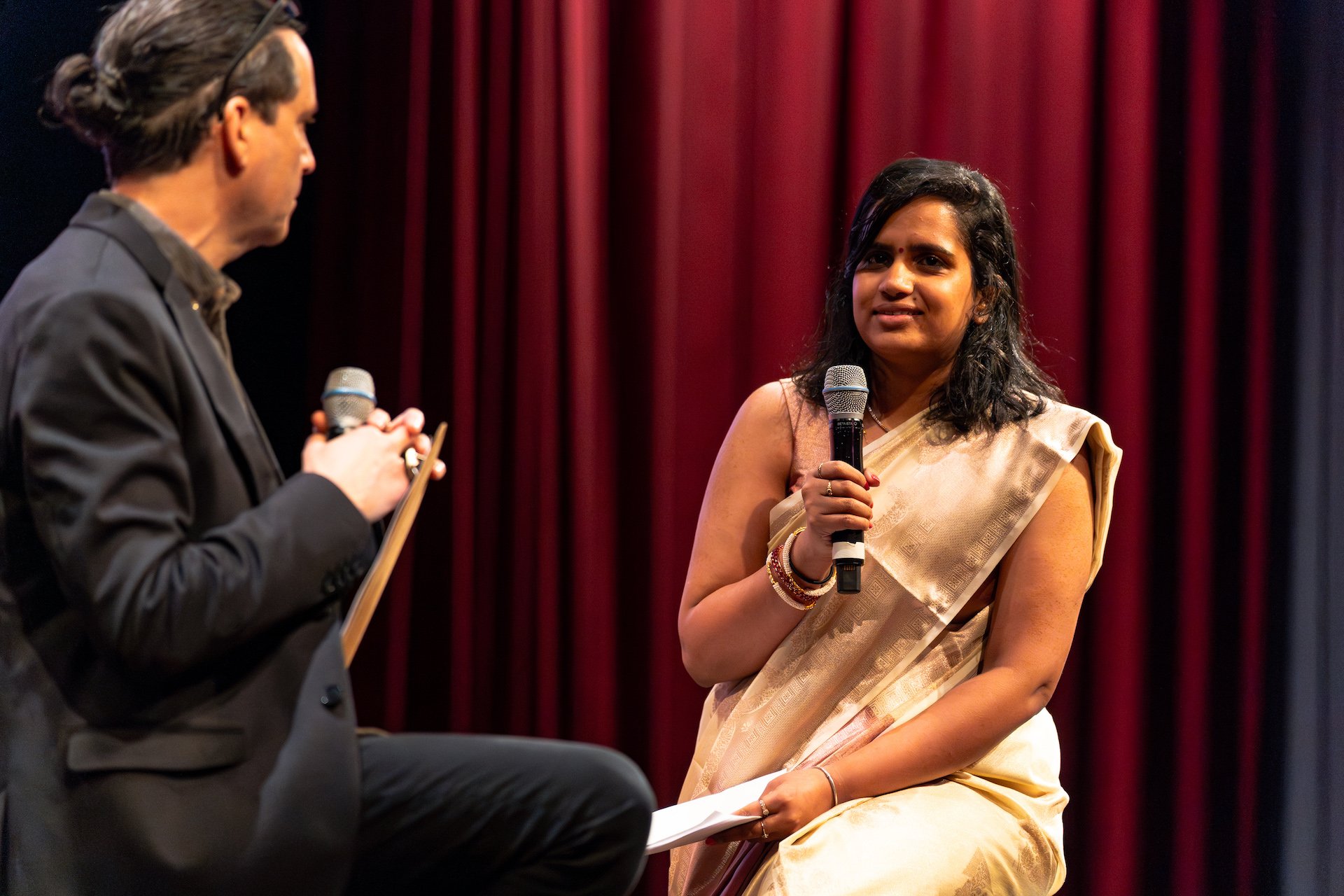
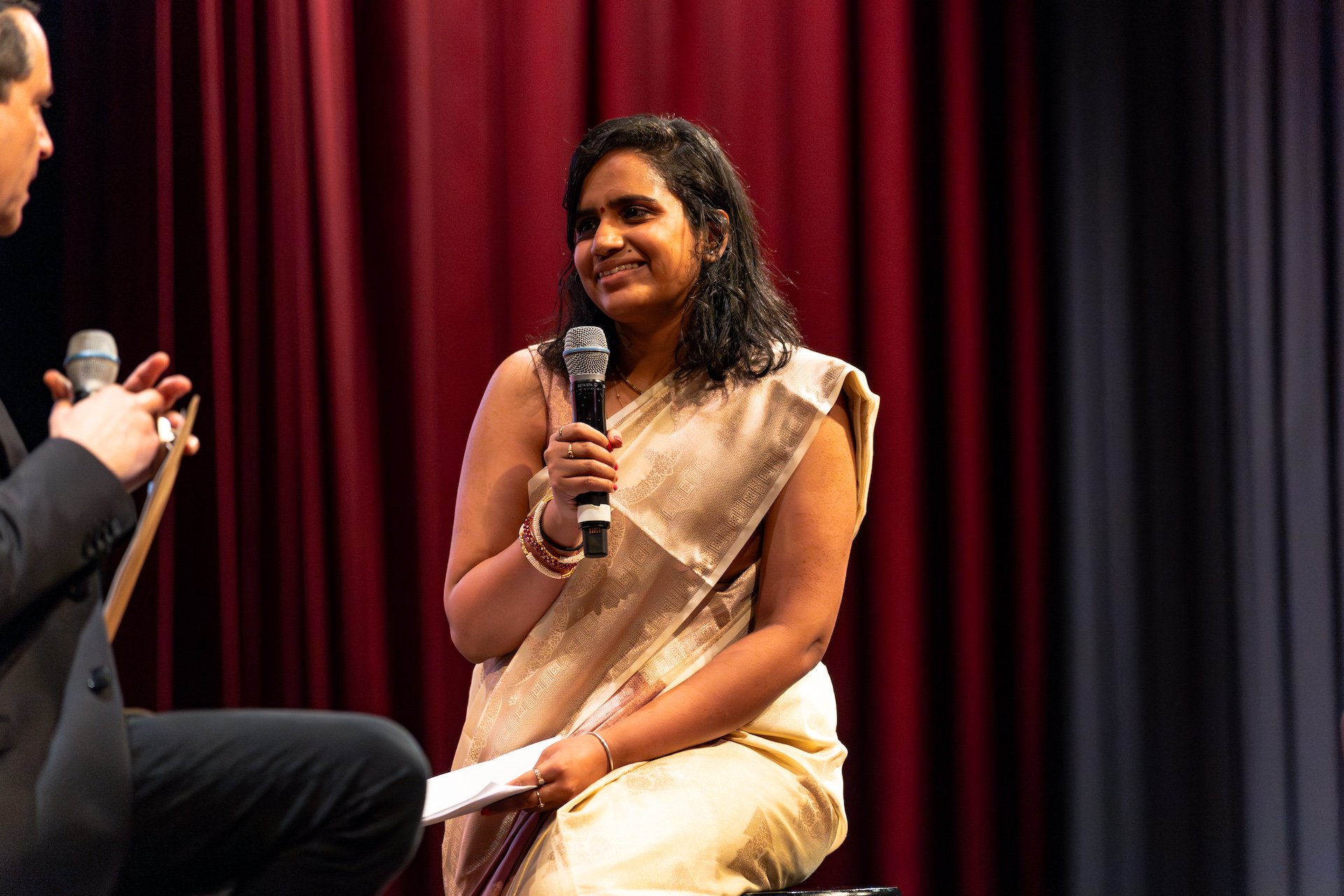
Despite these alarming figures, a significant lack of comprehensive data hampers the creation of targeted interventions for the South Asian community. The absence of detailed, systematic data collection makes it challenging to understand the full scope and nuances of the issue, thereby limiting the effectiveness of support programs. Discussions with experts and advocates further revealed that over half of the survivors served by domestic violence organizations are immigrants, underscoring the critical need for specialized resources that cater to this demographic.
Margaret Abraham, one of Ria's subject matter experts and a leading authority on this topic, emphasized the pervasive issue of underreporting among South Asian domestic violence survivors. She pointed out that many cases go unreported due to cultural stigmas, fear of retribution, and a lack of awareness about available resources. Abraham highlighted the glaring deficiency of national studies on domestic violence within immigrant communities. This lack of comprehensive research data severely limits the ability to advocate for and implement effective policies and interventions. Abraham stressed the necessity of systematic data collection as a foundational step toward addressing this issue.
By collecting detailed and accurate data, organizations can better understand the prevalence and dynamics of domestic violence within the South Asian community. This, in turn, would enable them to design more effective intervention strategies and secure the necessary resources and funding to support these efforts. The implementation of systematic data collection would also raise awareness about the issue, thereby encouraging more survivors to come forward and seek help.
Behind Closed Doors: Co-Creation Workshop
The lack of comprehensive data and the pervasive issue of underreporting sparked a profound curiosity in Ria, driving her to delve deeper into the underlying reasons. Eager to understand the South Asian diaspora's perception of South Asian women and the cultural factors contributing to these issues, she decided to conduct a co-creation workshop called Behind Closed Doors. This workshop aimed to explore the community's attitudes towards gender roles and domestic violence.
The co-creation session included a diverse group of seven participants: four men and three women of South Asian descent. During the workshop, Ria facilitated open and candid conversations about abuse, encouraging participants to share their personal experiences and observations of gender stereotypes from their childhoods. The discussions revealed a tapestry of cultural norms and expectations that shaped their views on gender and relationships.
One of the most enlightening parts of the workshop was an activity where participants were asked to imagine and articulate what they would do if they were born the opposite gender. This exercise prompted deep reflection and revealed ingrained gender biases and expectations. Many participants expressed that societal and familial pressures had significantly influenced their perceptions and behaviors regarding gender roles.
As the discussions progressed, it became increasingly evident that abuse is often normalized within the South Asian community. Cultural stigmas and deeply rooted patriarchal values contribute to the acceptance and perpetuation of domestic violence. A participant's candid admission starkly illustrated this normalization of abuse: "I did not know domestic violence organizations existed until you mentioned it." This statement highlighted the profound lack of awareness and accessibility of support resources for victims within the community.
Mehfooz
With language barriers and the unfamiliarity of a new place, survivors of domestic violence often find themselves lost and struggling to locate the resources they need. To address this challenge, Ria designed Mehfooz, an AI-powered chatbot specifically tailored to support South Asian survivors of domestic violence by providing them with easy access to critical resources in their preferred languages. Recognizing the linguistic diversity and unique cultural needs of South Asian communities, this chatbot offers personalized assistance to ensure that users receive relevant and understandable information.
Mehfooz is easily accessed through different convenient methods. Users can perform a Google search to find and engage with the chatbot or scan a QR code to initiate contact. This accessibility is crucial as it minimizes barriers and ensures survivors can quickly and discreetly find the help they need, regardless of their familiarity with local resources or technological tools.
The chatbot is more than just a source of information; it is a lifeline for those who feel isolated and unsupported in a foreign environment. Mehfooz leverages advanced technology to bridge the gap between survivors and the support services available to them. Doing so ensures that help is always within reach, even in the most challenging circumstances.
Through Mehfooz, survivors can access various services, including legal advice, counseling, emergency contacts, and safe housing options. The chatbot's ability to communicate in multiple languages makes it an invaluable resource for South Asian women who might otherwise struggle to understand and navigate the support systems available in a new country. Furthermore, Mehfooz's design prioritizes discretion and user safety. The ability to access the chatbot via a simple Google search or QR code scan means that survivors can seek help without drawing attention to their actions, a crucial feature for those living in constant fear of their abusers.
Unravel
In her quest to address the challenges of evidence collection in environments of constant surveillance, Ria designed Unravel. Unravel is a unique gamified experience meticulously crafted to enlighten and educate the South Asian community about the pervasive issue of domestic violence. Through this gamified experience, Ria aimed not only to shed light on the prevalence of domestic violence but also to immerse users in the relentless struggles faced by women living in tumultuous and uncertain circumstances.
Unravel goes beyond traditional educational tools by engaging users in an interactive and immersive experience. The game simulates real-life scenarios, allowing players to navigate the complexities and nuances of domestic violence situations. By doing so, it fosters a deeper understanding and empathy among users, helping them recognize the often-hidden signs of abuse and the emotional and psychological toll it takes on victims.
Ria’s says her vision for Unravel is to create a ripple effect of awareness and action within the South Asian community. By making the issue of domestic violence more visible and comprehensible through this gamified experience, she hopes to inspire individuals to become advocates for change and support survivors in their journey toward safety and justice.
Noor
Noor is a safety box designed specifically for women living in abusive households. This box allows women to collect and document evidence of abuse discreetly. Noor envisions creating a supportive and empowering community for South Asian domestic violence survivors, offering them the resources and solidarity they desperately need.
The Noor box is ingeniously designed to resemble a menstrual product, serving as an effective deterrent due to the stigma and cultural taboos associated with menstruation. Men are often reluctant to interact with menstrual products, making the Noor an excellent disguise for women to hide essential and sensitive items safely.
Inside the Noor box is a secret compartment containing a QR code. When scanned, this QR code directs users to a secure app to digitally document their experiences and collect evidence of abuse without fear of detection. The app disguises itself as a menstrual app to prevent the user from getting into trouble. This app also provides access to a community of fellow survivors, allowing women to share their struggles, seek advice, and support one another in a safe and confidential environment.
Noor aims to empower South Asian women living in abusive situations, giving them the means to protect themselves and build connections with others who understand their experiences. This initiative addresses survivors' immediate needs and seeks to raise awareness and advocate for more tailored resources and support systems for the South Asian diaspora. By providing discreet means to document abuse and fostering a supportive community, Noor represents a critical step toward addressing the unique challenges faced by this vulnerable population.
To learn more about Ria John’s work, take a look at her projects in more detail at riajohn.notion.site.






























